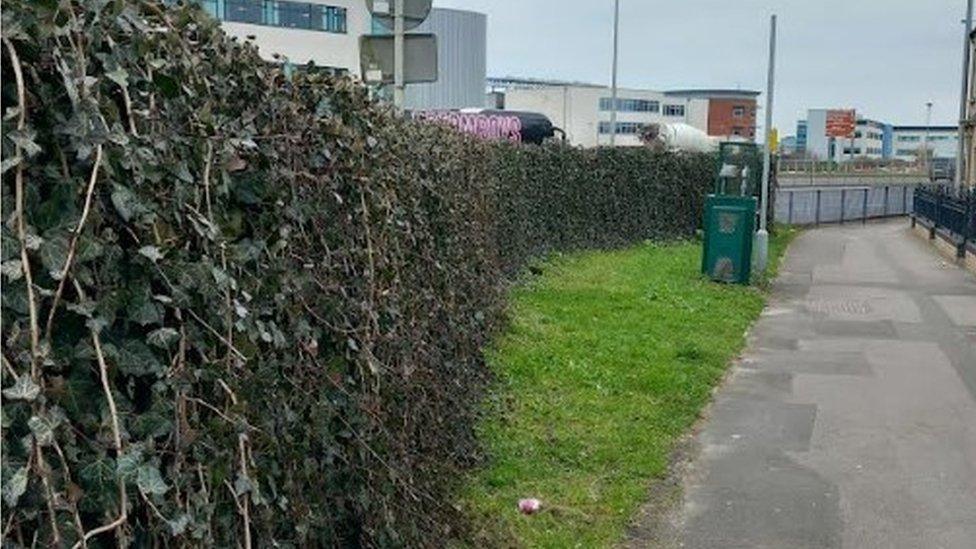Climate change: 'Green screens' in Swansea to tackle school pollution
- Published

"Green screens" are wired fences covered by climbing plants
Fences covered in climbing plants are being built at two primary schools in Swansea in an attempt to improve air quality.
Swansea Council will build the so-called "green screens" at Morriston and Oystermouth primary schools.
Air quality was monitored outside the schools and, while neither breached specified thresholds, they are both next to major roads.
The trial - funded by a council grant - will start in the next few months.
It is hoped that the plants will help with pollution levels by absorbing carbon dioxide and releasing oxygen, according to the Local Democracy Reporting Service.
The council monitors a number of pollutants at locations across Swansea, the main one being nitrogen dioxide.
'No safe limit'
Tom Price, the council's lead pollution control officer, told councillors on a scrutiny group the green screens - financed through a grant - would be installed in the coming months and monitored long term to see how effective they were.
One was previously installed near houses in Port Tennant, by the junction of Fabian Way and Port Tennant Road.
Mr Price was asked if air quality rang alarm bells at any schools in Swansea. He said while no thresholds were being exceeded, there was "no safe limit" around schools.

The hope is one of the benefits will be to help children with asthma
A report before the panel said there was no set threshold for a tiny particulate called PM2.5.
It also heard the impacts of engine idling were being looked into.
This can be a particular issue at school drop-off and pick-up times, and Mr Price said behavioural change was required.
Air quality expert Prof Paul Lewis told the panel cars waiting around outside schools was a problem, particularly as children were much closer to exhaust level than adults.
"It is a focus for government, and I think it should be", said Prof Lewis.
"But we need more evidence in terms of what those exposure levels are and what the real health impacts are.
"The evidence that we have got - we know it increases the risk of asthma developing in the child, and also increases the risk of asthma attacks."
- Published7 March 2023

- Published9 March 2023

- Published6 March 2023
